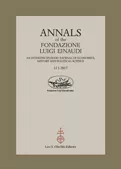Marshall Sahlins’s “The Original Affluent Society” challenged the assumption that all of human history has witnessed a struggle between needs and insufficient means to satisfy them, arguing that hunter-gatherer societies demonstrate instead a “Zen road to affluence” produced by limited needs relatively easily satisfied. I argue that this formulation can help to deflate the claim, often being made around the time Sahlins wrote his essay, that capitalism has produced the means to overcome scarcity, which was seen by some as an ideological construct. Instead, through an account of the writings of Adam Smith and David Hume, I show the dynamic role that the production of new needs plays in constituting a culture of scarcity that cannot be so easily dispatched.



